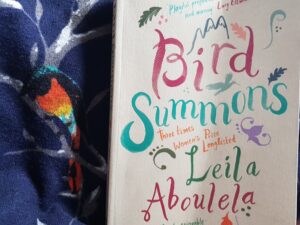With the laundry baskets overflowing, three children at home creating chaos faster than I could possibly manage – and a handful of Audible credits that needed used up – I made what turned out to be the best spontaneous book choice.
Forget your typical summer reads (I wouldn’t be making it to the beach in any case). This book is exactly what I needed. Self help isn’t my usual genre, but the title alone – How to Keep House While Drowning – spoke to me, and with a listening time of only 3 hours, I’d be stupid not to give it a go.
Indeed, the key aspect of this book for me was its accessibility – it was very easy to engage with, very easy to understand, and very easy to finish (and I do have a problem with finishing audiobooks – difficulty concentrating through constant interruption can make them seem like more of a chore than a pleasure).
Crucially, author KC Davis is a licenced therapist, as well as having active experience ‘drowning’ while keeping house herself. She shares her struggles and her techniques for keeping afloat, which are all relatable, doable, adaptable and centred around caring for the self above all else.
I did not come away from this with a rigorous new game plan for tackling my home. I did not and still do not harbour dreams of becoming a domestic goddess. Instead – which in my view is far more valuable – I came away with the ability to not feel guilty about the state of my home.
Here are a few choice lessons that have stayed with me after listening (paraphrased):
Try not to think of it as ‘housework’ or ‘chores’. These are ‘care tasks’.
Anything that is worth doing is worth doing partially.
Momentum breeds momentum.
It is not tidying. It is ‘resetting your space’.
Your space exists to serve you. You do not exist to serve your space.
For the full experience, I thoroughly recommend giving this wonderful book a read or a listen. If your home doesn’t thank you, your mental health probably will.
Reviewed by Nadia Tariq

